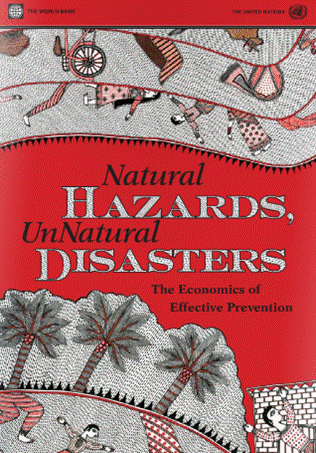Demetra finans blog
www.demetra.dk og www.teknisk-analyse.dk
Natural Hazards, UnNatural Disasters
Publiseret af John Yde i Konjunktur • 02-12-2010 16:41:27

Verdensbanken og FN har udsendt en større værk, der beskriver metoder til at forebygge og afhjælpe både naturlige og menneskeskabte katastrofer. Klik på dette link: http://www.gfdrr.org/gfdrr/nhud-home
for at komme til publikationen, der både kan læses online og downloades.
Verdensbankens beskrivelse af rapporten:
Earthquakes, droughts, floods, and storms are natural hazards, but unnatural disasters are the deaths and damages that result from human acts of omission and commission. Every disaster is unique, but each exposes actions--by individuals and governments at different levels--that, had they been different, would have resulted in fewer deaths and less damage. Prevention is possible, and this book examines what it takes to do this cost-effectively.
Natural Hazards, UnNatural Disasters looks at disasters primarily through an economic lens. Economists emphasize self-interest to explain how people choose the amount of prevention, insurance, and coping. But lenses can distort as well as sharpen images, so the book also draws from other disciplines: psychology to examine how people may misperceive risks, political science to understand voting patterns, and nutrition science to see how stunting in children after a disaster impairs cognitive abilities and productivity as adults much later. It asks not only the tough questions, but some unexpected ones as well: Should all disasters be prevented? Do disasters increase or decrease conflict? Does foreign aid help or hinder prevention? The answers are not obvious. Peering into the future, it finds that growing cities and a changing climate will shape the disaster prevention landscape. While it is cautious about the future, it is not alarmist.